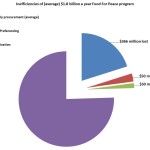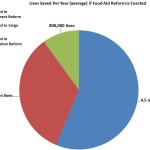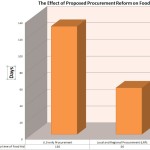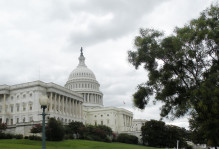DCSI-LCE Week 3: Internship Week 1 Recap
This past week included my first four days as the AidData Fellow of the United States’ Senate Committee on Foreign Relations. Already I have completed two live projects, am working on one more as we speak, and I have three more on the docket once that is completed. To be specific as to the kind of work that I’m doing, on my second day I put together three visual aids to support a Bill on Food Aid Reform that Senator Corker and his staff are introducing this week. On my third day I sat in on a conference call hosted by Jeff Gedmin, President and CEO of The Legatum Institute of London, which featured Newsweek and London Review of Books contributor Peter Pomerantsev, and Ukrainian/Crimean correspondent of Radio Free Europe Mariana Drach, and used the information from that call to write a Policy Memo for Senator Corker and his staff. On my fourth day I begun working on putting together an AidData Fact Sheet on Haiti for our Correspondent at USAID. Once I have completed that I will put together an AidData Fact Sheet on Burundi as part of a joint project with another staffer and another intern in Senator Corker’s office. Finally, once I have completed that I will finish a project I have started working on for the State Department’s Bureau of Diplomatic Security, which entails me making maps of the infrastructure in the surrounding areas of the Foreign Affairs Security Training Center (FAST-C) in Blackstone, Virginia and the Foreign Law Enforcement Training Center (FLET-C) in Glynn County, Georgia. I’m actually doing substantive policy work in areas that I’m actually very interested in and passionate about! Not to mention that there are briefings, hearings, meetings, lectures, and staff bonding events going on literally all the time! It is truly a blessing but also very overwhelming! On top of everything else, every staffer and intern that I’ve gotten to know so far is so nice, welcoming, and down to earth about everything, and they definitely understand that we’re all in this together and they’ll do whatever it takes to help anyone succeed!
Here are the three visual aids that will appear on a poster when Senator Corker and his staff introduce their Food Aid Reform Bill this week.
- Inefficiencies in Food For Peace Graph
- Lives Saved By Food Aid Graph
- Food Aid Delivery Times Graph
I show these to all of you not because I want to brag about my internship and my basic data visualization skills, nor because I want to make a shameless plug for this bill, but because I believe that the United States needs to change the way it interprets and internalizes Foreign Aid and International Development, specifically in the context of food aid. The three inefficiencies that this bill attempts to fix are: 1. Monetizaton (the sale of food commodities purchased in and shipped from the United States and sold for local currency in a recipient country by “cooperating sponsors”, which are typically U.S.-based NGO’s or recipient governments), 2.Procurement Preferencing (the fact that the United States will only give food that is grown in the United States as aid), and 3. Cargo Preferencing (the fact that the United States will only deliver food aid on United States-owned ships and airplanes). As these three graphs show, if the United States undertakes this food aid reform it can be a much more effective donor: it would be able to ship more food more quickly, incur less of a financial cost than it does now, and all while being able to save more lives–which specifically is of the utmost importance.
It is also worth noting that the United States needs to change the way it is interpreting and handling the situation in Ukraine and Crimea. Ukrainians are primarily concerned with the state of their economy, their governmental transition, and their integration with the rest of Europe and the West. The ethno-linguistic divide between themselves and Russians is NOT of Ukrainians’ prime concern. Rather, it is Russian attempts to control all forms of media outlets in Ukraine, as well as their discrimination against ethnic Crimean Tatars that is. Furthermore, Russia is winning the “Information War” between themselves, Ukraine, and The West, and the United States has done nothing to address these facts and concerns. In my opinion, this is what the United States should do:
- Shift the government’s official focus from the trivial “ethno-linguistic divide” between Ukraine and Russia to issues surrounding Ukraine’s economy, Ukraine’s governmental transition, Ukraine’s integration with the rest of Europe and the West, and the state of all Ukrainian media outlets.
- Provide all resources necessary to support Ukraine’s Reanimation Reforms Package, which helps policy experts connect with policy makers in order to “squeeze the officials in the middle”, promote political collaboration from all points of view, and enhance the political decision-making of the Ukrainian government.
- Develop a strong official media presence of the government as a whole within Ukrainian websites and social media, and amongst the Ukrainian youth rather than within scholarly journals and academic magazines that are targeted towards a smaller, older, and highbrow audience that has a significantly weaker policy impact on both Ukraine and Russia.
- Develop a strong official media campaign that demonstrates the interconnectedness and strong causal relationship between domestic corruption in Ukraine and international corruption.
- Continue sharing information and resources with Ukraine on corrupt officials and oligarchs and aid in their apprehension and prosecution of them.
- Continue facilitating efforts for Ukraine to be economically integrated with EU members.
- Continue facilitating efforts for Ukraine to form alliances with NATO members.
- Continue collaborating with American allies within the EU and NATO so that they all can work together against Russia in this “Information War”.
I’m interested to know what everyone’s thoughts are on these issues, so please leave me a comment or two! =)
Hope you enjoyed reading and stay tuned for next week’s blog!
From D.C With Love,
-Dom
Comments are currently closed. Comments are closed on all posts older than one year, and for those in our archive.






It is great that you are doing such important work in a subject area that you are so interested in. It sounds like you have a great deal of opportunities available to you, and you would be wise to take advantage of them. Your assignments appear to be not only very informative and helpful but a great learning experience for yourself as well.
Where your prescriptions for Ukraine and Crimea are concerned, you envision the United States becoming relatively deeply involved; providing resources, information, and consultation. How do you envision this type of involvement being approved by Congress?
Dom, I am so proud of the work you are doing. You are so passionate about international development and it shows in your excitement and enthusiasm for your work. Keep that going through out the summer and you will definitely learn a lot. Keep up the great work!
Thanks for the insightful and supportive comments, Eboni and Caitlin, I really do appreciate them!
To answer your question Caitlin, I believe that specifically the Senate Committee on Foreign Relations would look favorably upon further involvement into Ukrainian affairs, as 14 of the 18 members of the committee have publicly and openly stated that they would favor an expansion of the Aid/Care Package that they voted to send to Ukraine back in March. As to the rest of Congress, it is hard to say because the Senate Foreign Relations Committee, unlike the rest of Congress, is so genuinely unpolarized and so less driven by party ideology and constituent concerns, it is also a lot smaller too, which makes cooperation a lot easier. So only time will tell what all of Congress makes of this proposed expanded involvement into Ukrainian affairs. Hope that is helpful! Thanks again for commenting! =)
Wow. What an amazing first week! Keep up the great work. Next week I expect you to come up with a comprehensive Middle East peace plan. Love your energy, enthusiasm, and willingness to engage on so many policy issues. Check out most recent snap poll on FP that addresses both foreign aid and Ukraine issues.
atfp.co/1oPEnkf
Keep up the good work and keep us posted on what you are doing.
Best.
Mike
Your passion for your internship is infectious! I especially enjoy looking at your work from a public health perspective–really interesting stuff! The scope of the work you are doing is incredible. I’m sure it will keep you really energized and motivated for the rest of the summer. What is the dynamic like in the office? You are the only USAID congressional intern, right?
I hope I get a chance to meet with you soon and hear about the staff bonding, hearings, and lectures. There is so much to learn and it’s so great to hear that you are soaking it all in. I can’t wait to see where these next nine weeks take you–you have such an unfaltering excitement for the field. You’re going to do wonderful things!